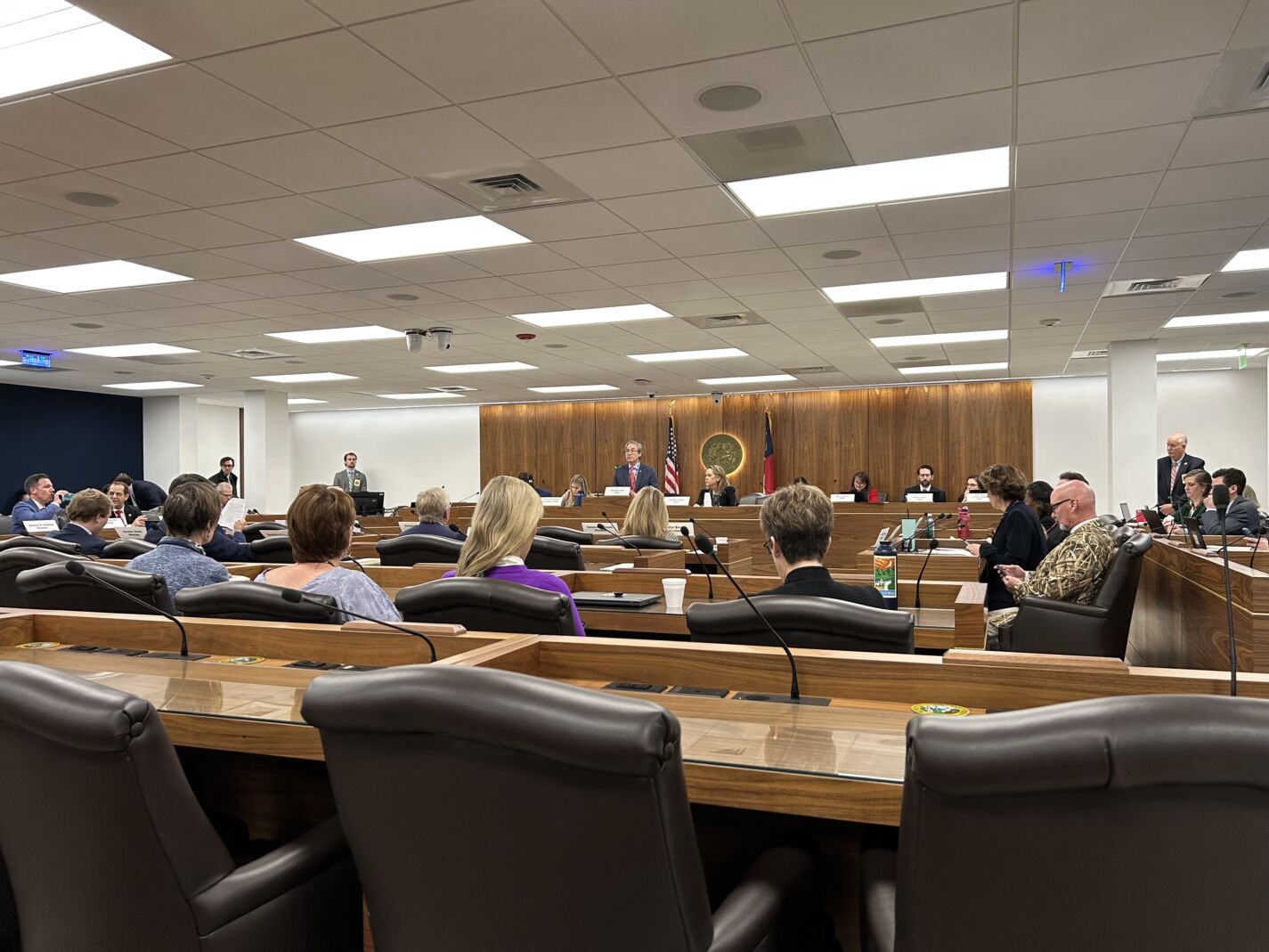On Wednesday, N.C. Senate Republicans held a press conference introducing the Parents’ Bill of Rights. which they say would give parents more control over the direction of their child’s education and require more transparency in public schools.
During the N.C. Senate’s education committee, where the bill was later debated, several Democrats objected, calling the bill “divisive.”
The Parents’ Bill of Rights, or S.B. 49, would prevent material discussing gender ideology, sexual activity, and sexuality in the classroom for children in kindergarten through fourth grade. The bill would also require schools to tell the parents when a child wants to change his or her pronouns.
Schools and educators have faced backlash from parents across the country for withholding critical information about their children, such as a child wanting to change their gender.
A WRAL/SurveyUSA poll found that 58% of North Carolina adults support legislation that bans instruction in sexual orientation or gender identity issues for students in kindergarten through third grade, with 45% being strongly in favor.
“This bill provides parents a path to be more involved in their child’s education,” said Sen. Galey, R-Alamance, a lead sponsor of the bill, at the press conference. “It affirms their rights by actually enumerating them listed.”
The bill stipulates that every parent has a right to:
- Direct their child’s physical, mental, and emotional health.
- Direct how and where their child is educated.
- Transparency when dealing with their child’s teachers and school.
- A classroom and school environment that is safe and nurtures their child’s well-being.
- Be actively engaged in their child’s education.
- Resources and accountability of school districts, administrators, and teachers.
Sens. Michael Lee, R-New Hanover, and Lisa Barnes, R-Nash, are also bill sponsors.
“I see [S.B. 49] as a win-win, not only for parents and students but for parents and teachers,” said Barnes. “I see this bill as fostering parental involvement, clearly setting expectations for the role of public instruction, and promoting transparency.”
Several Senate Democrats adamantly opposed the bill during Wednesday’s committee meeting. Sen. Natasha Marcus, D-Durham, called the bill disappointing and “divisive” and questioned whether bill sponsors had reached out to various interest groups about “the harmful consequences of these proposals.”
“It baffles me to think that this bill could be divisive,” Galey responded. “I cannot understand why it would be controversial to say that children ages 5 to 9 years old should not be taught about sexuality or sexual activity in a public school classroom. That blows my mind.”

The North Carolina Association of Educators (N.C.A.E.) also stated its opposition to the Parents’ Bill of Rights. The N.C.A.E. is an organization that represents about 18% of public school teachers and lobbies lawmakers for left-leaning education policies.
“This bill tells portions of our communities, especially those that identify as LGBTQ plus, that they are not welcome. Many of the provisions provided in this bill aren’t even necessary because they include rights that parents already have,” Tamika Walker Kelly, president of the N.C.A.E., told the committee members.
Andre Beliveau of the John Locke Foundation publicly testified in support of S.B. 49.
“The John Locke Foundation supports education policy in North Carolina that ensures transparency and accountability in education and upholds the rights of parents and guardians to oversee the direction of their children’s education, physical health, and mental well-being,” said Beliveau. “We believe Senate bill 49 ensures these policy goals.”
Believeau’s full comments can be viewed below.
A poll released last week showed 66% of likely voters in N.C. are dissatisfied with the quality of K-12 education.
“Parents are frustrated by what they see and don’t see going on in the classroom,” said Dr. Bob Luebke, a senior fellow at Locke’s Center for Effective Education. “They are tired of being marginalized. Parents are standing up and reminding everyone of their right to control their child’s education and their commitment to working alongside teachers and administrators to give their children the best possible education.”
Dozens of other states have either passed or are considering legislation similar to the North Carolina Parents’ Bill of Rights proposals.
Georgia lawmakers passed a measure stipulating that parents have the right to see the curriculum their children are learning.
The version of the bill in Florida has drawn the most national attention. The legislation, dubbed the “Don’t Say Gay” bill by its opponents, prohibits educators from teaching kindergarten through fourth-grade students on sexual orientation or gender identity and numerous other protections for parents.
Democrats and teacher unions in other states have largely opposed legislation similar to N.C.’s Parents’ Bill of Rights.
In Virginia, a delegate in the state house filed a bill called “Sage’s law,” which would require schoolteachers and school staff to notify parents about their children’s professed gender transitions. The bill is named for an Appomattox teenager who was the victim of sex trafficking after her high school hid her transgender identity from her mother.
The Parents’ Bill of Rights was passed by the education committee and sent to the health care and rules committees. The Committee on Rules and Operations of the Senate referred back to the Committee on Health Care for further consideration.